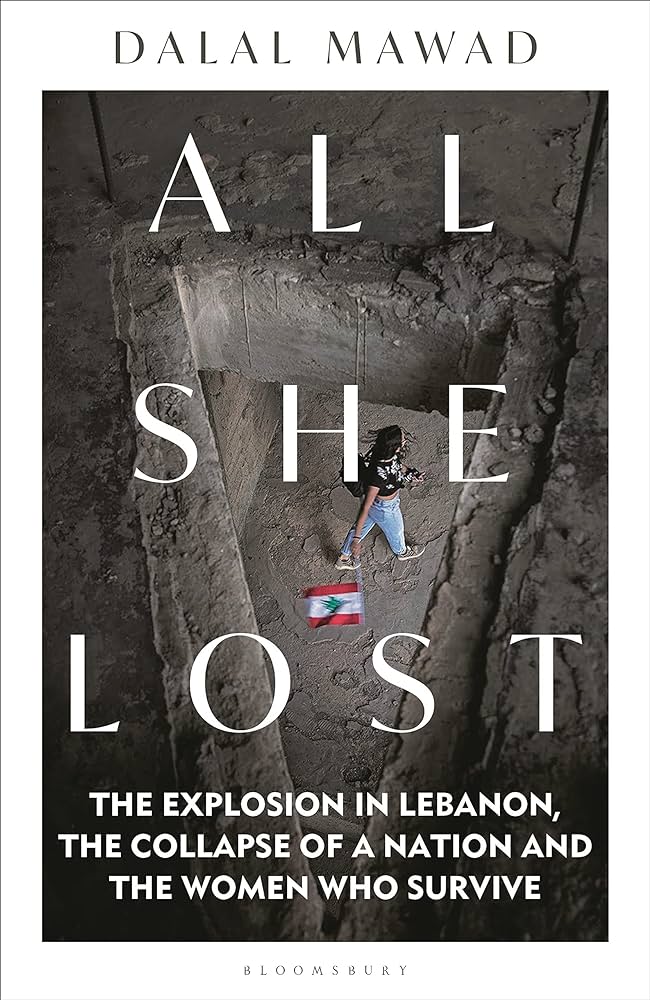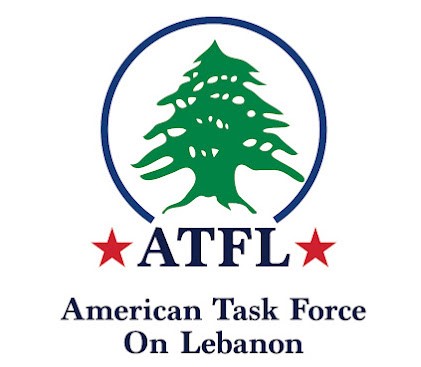Please join the Middle East Institute and the American Task Force on Lebanon for a virtual talk featuring award-winning journalist Dalal Mawad discussing her recently released book All She Lost: The Explosion in Lebanon, the Collapse of a Nation and the Women who Survive (Bloomsbury Continuum, 2024). In it, Mawad explores the impact of the August 4 2020, Beirut explosion that killed hundreds of people with a focus on the women survivors. Through the lens of women who suffered immeasurable loss, she tells a broader story about the political and economic collapse of a nation that once promised so much hope.
MEI US-Lebanon Fellow Fadi Nicholas Nassar will join her to discuss how Mawad's book centers human narratives of survivors to highlight the complexities and consequences of Lebanon's concurrent crises, spanning from the Beirut port explosion to the severe economic collapse gripping the nation since 2019. The conversation, moderated by ATFL's Patricia Karam, will also explore the current economic and political landscape in Lebanon, discussing potential avenues for recovery, reform, and accountability amidst a multifaceted and protracted crisis.
Speakers
Dalal Mawad
Independent award-winning Lebanese journalist
Fadi Nicholas Nassar
U.S.-Lebanon Fellow, Middle East Institute
Patricia Karam (Moderator)
Non-Resident Scholar, Middle East Institute; Senior Advisor, American Task Force on Lebanon
Detailed Speaker Biographies
Dalal Mawad is an independent award-winning Lebanese journalist and author of “All She Lost”, a non-fiction book out since September 2023 ( Bloomsbury Publishing). She currently works for CNN in Paris as a freelance senior producer. She is also a professor at Sciences Po in Paris teaching video journalism. Previously, she worked with the Associated Press as a senior producer and correspondent covering Lebanon and the MENA region.
Fadi Nicholas Nassar is U.S.-Lebanon Fellow at the Middle East Institute and Director of the Institute for Social Justice and Conflict Resolution and Assistant Professor of Political Science and International Affairs at the Lebanese American University (LAU). He is also a Research Fellow at the Lebanese Center for Policy Studies, the oldest Lebanese-based think-tank, and a Fellow at The Sectarianism, Proxies and De-sectarianisation (SEPAD) project based at Lancaster University's Richardson Institute. His work focuses on international humanitarian and relief interventions in fragile and conflict settings, democratization, and U.S. foreign policy and Middle Eastern politics.
Patricia Karam is currently Senior Policy Advisor on Iran at Freedom House, where she plays a leading role in crafting Freedom House’s policy agenda and advocacy strategy for promoting democracy and human rights in Iran. She was, most recently, Middle East and North Africa (MENA) Director at the International Republican Institute (IRI). Prior to that, as MENA director at the Natural Resource Governance Institute, Karam was responsible for research, advocacy, grant-making, and technical assistance projects aimed at improving natural resource governance. As deputy director at the International Center for Transitional Justice, Karam oversaw educational transitional justice programs in three languages in Barcelona, Morocco, and South Africa. Karam has also held a combination of senior management, fundraising, and grants-making roles at the U.S. Institute of Peace, the Iraq Foundation, and the Iraq Embassy in Washington, D.C., as well as New York University’s Trauma Studies Program. She has published widely on the politics of the MENA countries and the dynamics of authoritarianism and conflict in the broader Middle East region.













